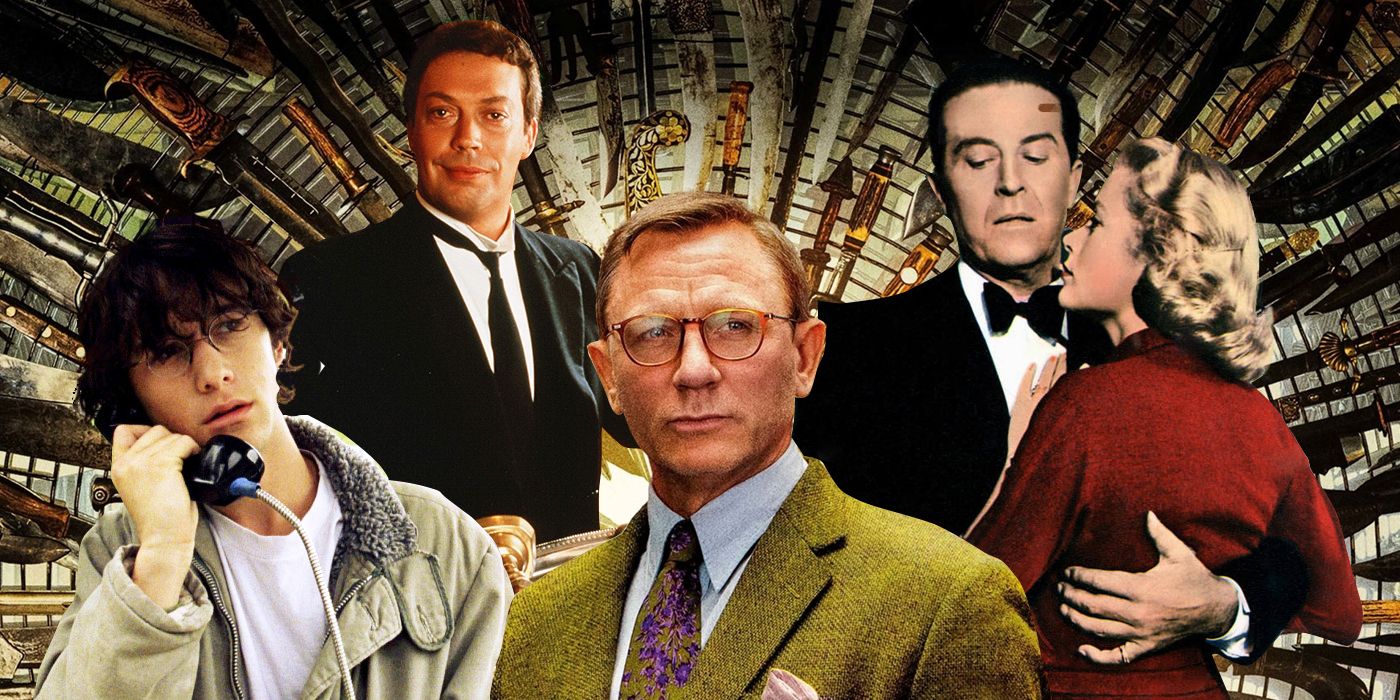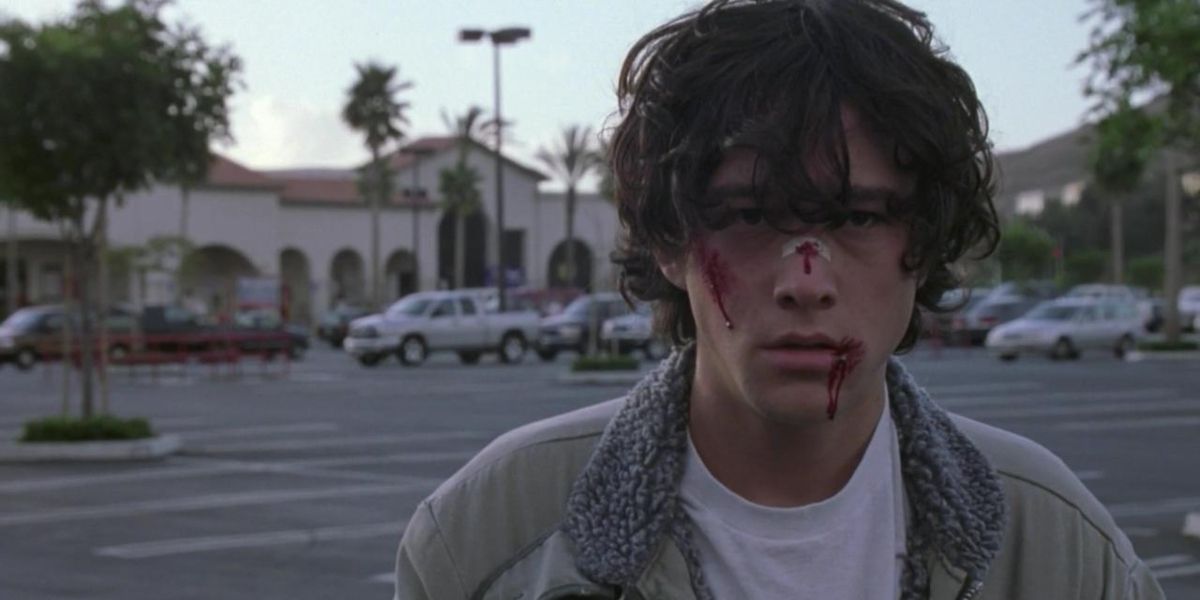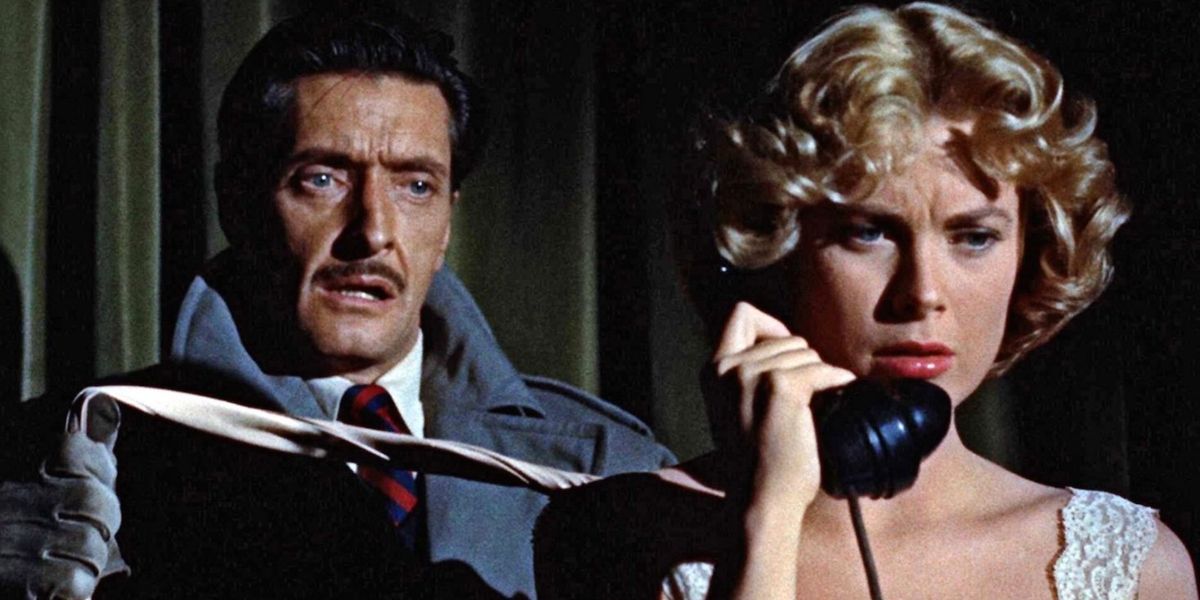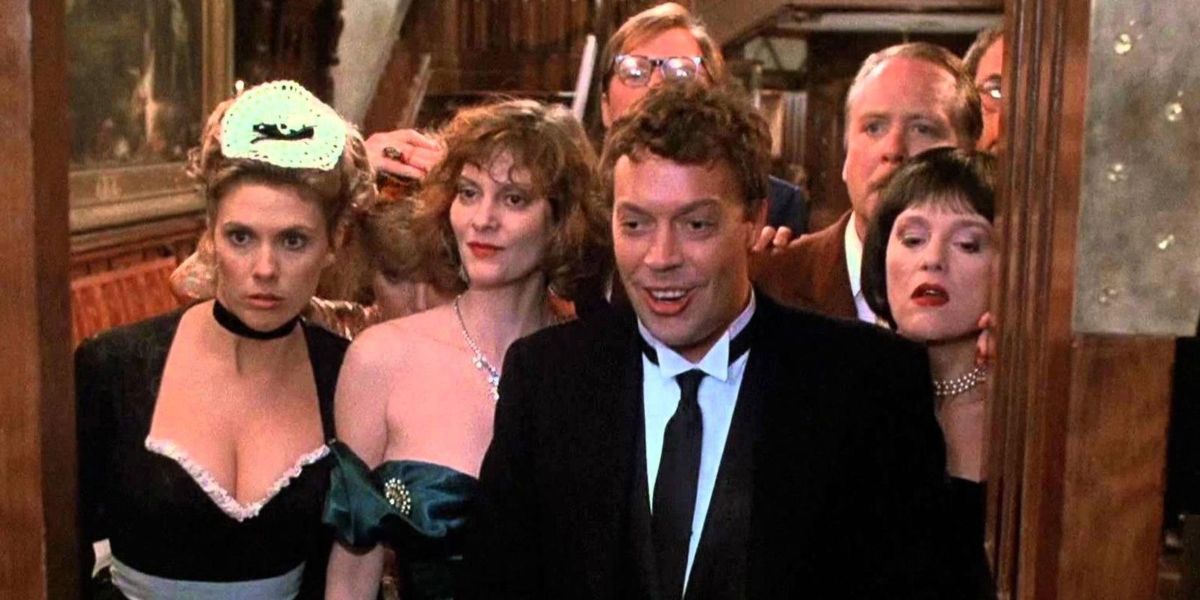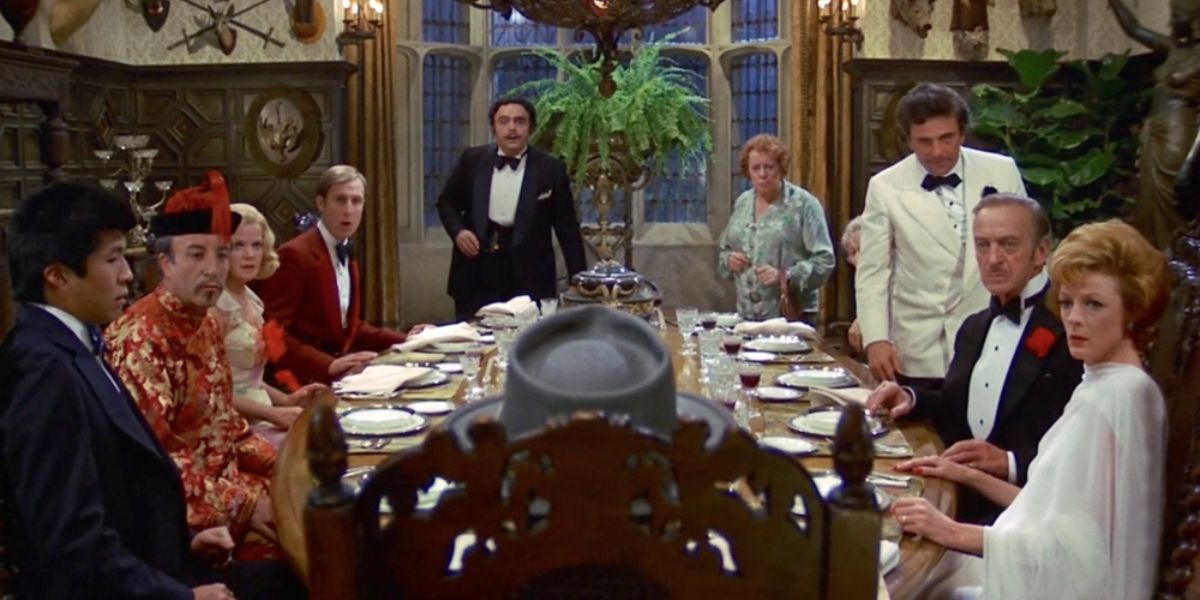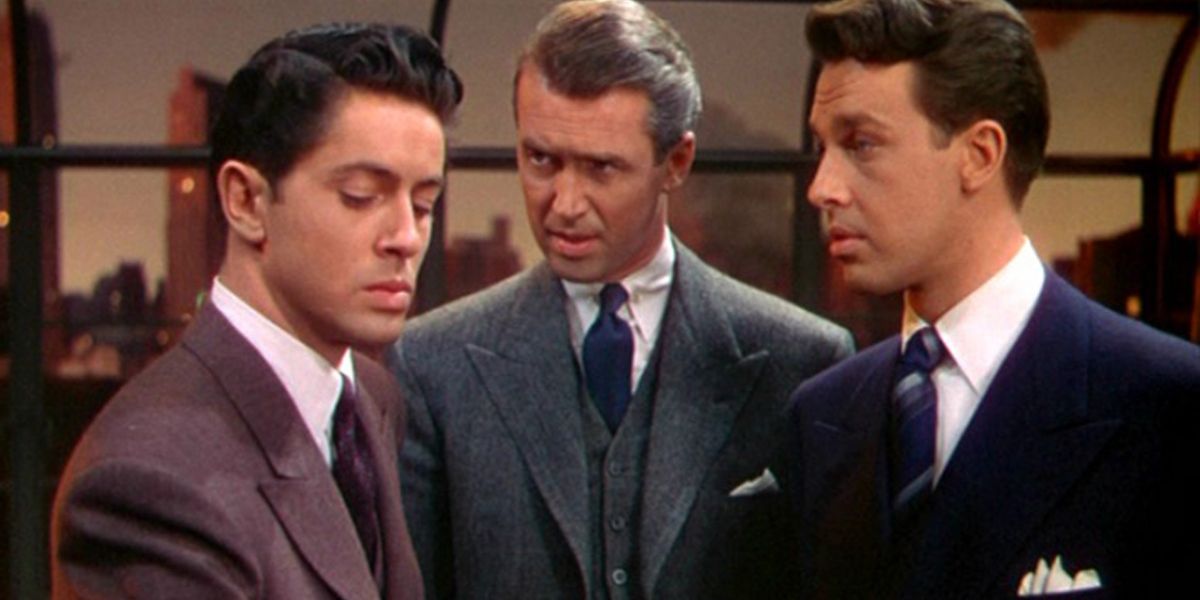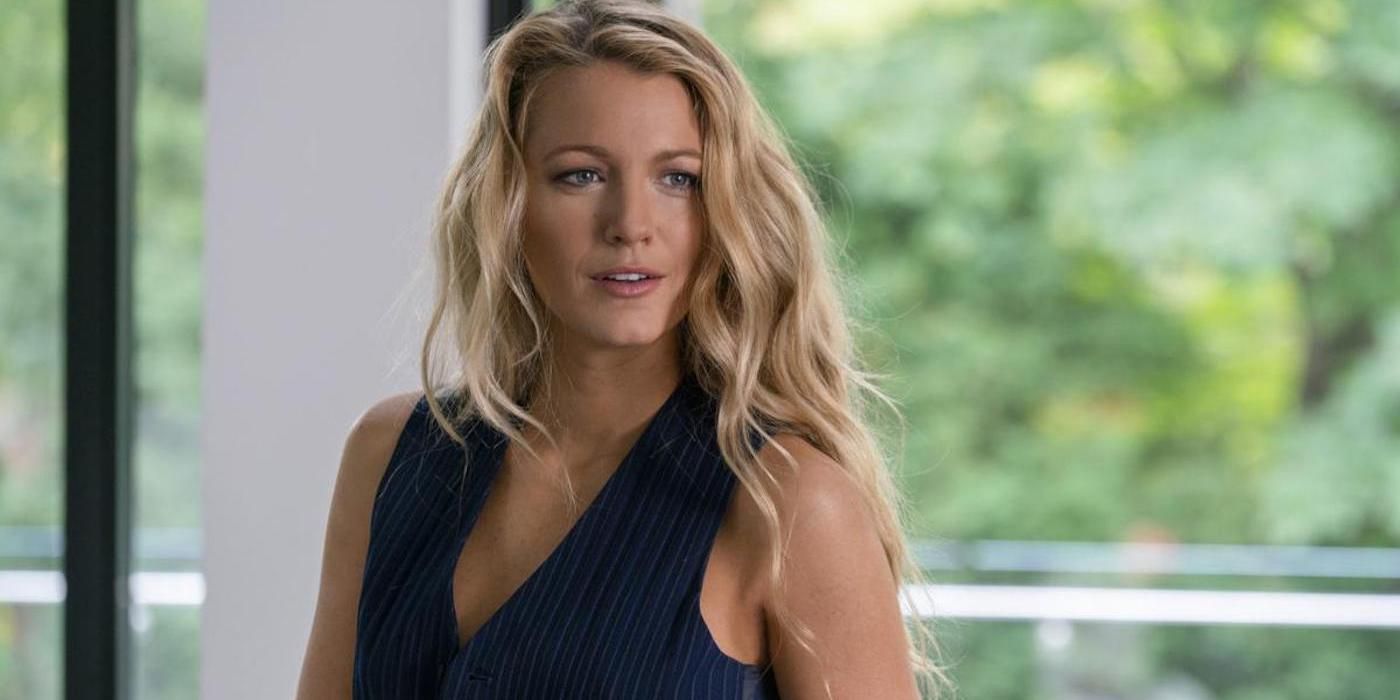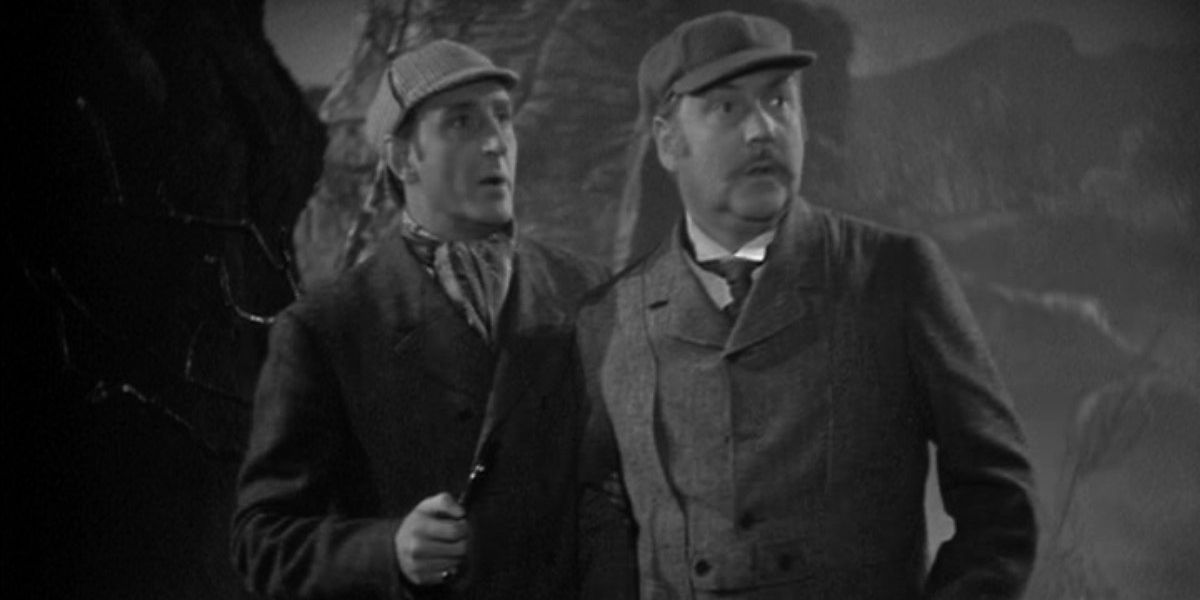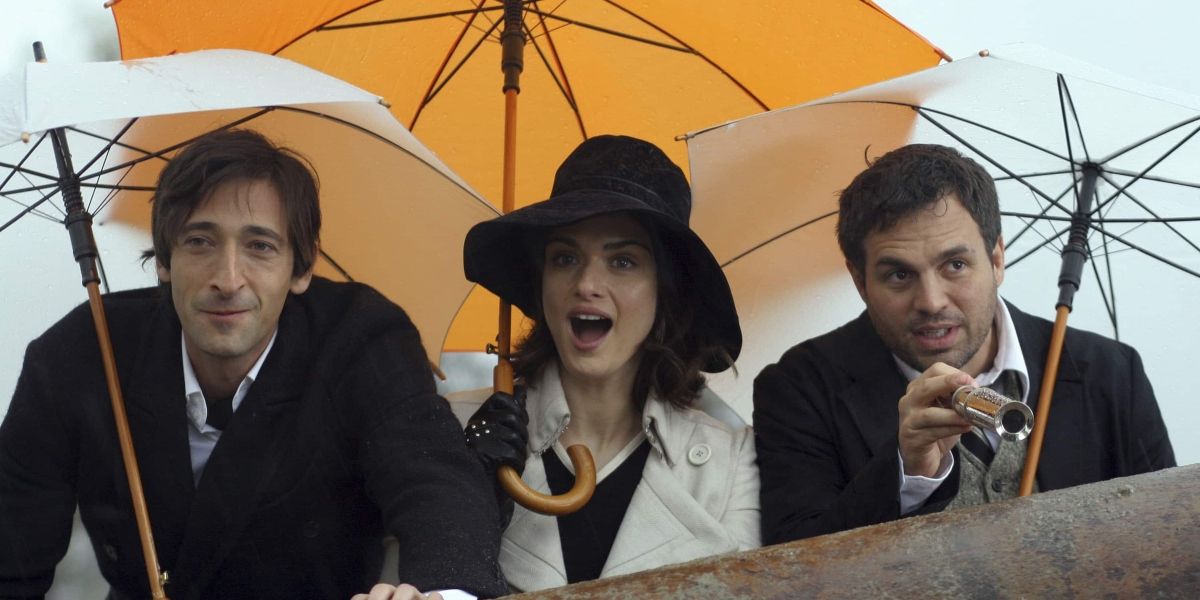The concept of a mystery focused on a closed circle of suspects goes way back—like, all the way back to Victorian novelist Wilkie Collins—and has been a continual source of innovation within crime fiction. The closed-space mystery creates a pliable backdrop against which the smallest details become clues. In the 2019 film, Knives Out, all of the conventions of the murder mystery are executed flawlessly as detective Benoit Blanc (Daniel Craig) pieces together the very puzzling circumstances of the death of a wealthy mystery author who was found dead the morning after his birthday party. Each family member that was present at the party is a suspect, making every dysfunctional aspect of every relationship a liability.
While you’re waiting for the sequel, check out these other mysteries. From classics to neo-noir to satirical takes on the detective, each of these pieces brings its own flavor of crime-solving entertainment.
Brick (2005)
When it comes to finding a film like Knives Out, it’s perhaps most simple and satisfying to track Rian Johnson’s fingerprints on other projects. Over a decade before sneaking the voice of Joseph Gordon-Levitt into Knives Out, he cast Levitt as the leading sleuth in a high school neo-noir called Brick. In it, a social outcast has to plunge himself into the complicated politics of the various cliques in order to solve his ex-girlfriend’s murder, a woman who he still loves and who—in one of her last known actions on earth—called him for help. Brick is a fascinating look at the power struggles at play in the teenage drug economy. The dialogue, sewn together with Johnson’s characteristic wit, is the driving force of this brooding mystery.
Dial M for Murder (1954)
As far as closed-room mysteries featuring writers as characters go, you can’t beat the Alfred Hitchcock classic Dial M for Murder. When Tony Wendice (Ray Milland) plans to kill his wife (Grace Kelly), he thinks it will be simple. He’s discovered that she’s having an affair, and uses the opportunity to create blackmail notes that will set up a deadly scenario. When his plan falls apart, his wife’s lover, Robert Cummings, uses his very specific skill-set as a crime fiction writer to piece together what actually happened. Like Knives Out, Dial M for Murder is hyper-focused on specific details, the actions and motives of each character set up like the prompt to a riddle, and also like Knives Out, it delivers a tightly-woven thread of suspense.
Clue (1985)
Not every board game can be translated into a compulsively watchable film, but that’s certainly the case with Clue. For those who have played the game, the premise of the movie is familiar: a group of iconic characters with aliases such as Miss Scarlett (Lesley Ann Warren), Mrs. Peacock (Eileen Brennan) and Prof. Plum (Christopher Lloyd), are invited to a dinner party by Mr. Boddy (Lee Ving) only to discover that each guest is being blackmailed by their host. When Mr. Boddy turns up dead in the middle of the dinner party, everyone is a suspect. Building off a premise already embedded in the cultural zeitgeist, Clue draws attention to the self-referential nature of the murder mystery. Viewers remember these characters because they have moved them as pieces across the board of this movie’s plot. Rather than making the process less enticing, using well-worn narrative structures makes for a very compelling narrative. Like Knives Out, Clue relies on an ensemble cast (Eileen Brennan, Michael McKean, Madeline Khan, etc.) to provide punch, comedic relief, and all the classic trimmings of a satisfying whodunit.
Murder by Death (1976)
For all its drama and intrigue, one of the defining characteristics of Knives Out is the way that it blends humor and satirical takes on the mystery form with its surprising innovations. If some of you were taken by the film’s funnier moments, you’re sure to love the 1976 comedy Murder by Death. In this flick, five private eyes are invited to a dinner party hosted by Lionel Twain (Truman Capote) in order to solve an unsolvable murder, with the winner receiving a million dollars. Events take a turn for the worse—and the wacky—as each detective learns the true cost of dining with an eccentric, aloof mystery-lover. Featuring memorable performances by Peter Falk, Peter Sellers, and Elsa Lanchester, this quirky film is a great moment of brevity in the genre.
Rope (1948)
Tension, tension, tension. Another Hitchcock gem, Rope features some of the same lavish displays of wealth as Knives Out, while further highlighting a kind of amoral edge that comes from privileged idleness. In Rope, two young men (John Dall and Farley Granger) decide to act upon a philosophical exercise they first heard from their old teacher (James Stewart). To prove their superiority and to display the act of murder as a kind of art form, they strangle one of their friends and place his body in a wooden chest before hosting a dinner party to which they invite, among others, the victim’s father and the teacher who first inspired their plan. This slow-burning thriller doesn’t hinge on any missing facts—from the beginning, the who, what, when, and where are all established—but it’s astonishing how much tension remains inside a puzzle that appears to be solved.
A Simple Favor (2018)
Another film that will appeal to those who liked Knives Out for its comedic flair, A Simple Favor is unique in the mystery genre in that the story centers around women. Oftentimes, women present themselves in noir and crime narratives as femme fatales or sidekicks. Here, both the missing person and the main figure driving the search are women. Stephanie (Anna Kendrick), a single mother vlogger, investigates the disappearance of her friend Emily (Blake Lively). Full of plot twists and noir sensibilities, the film also features performances by Henry Golding, Andrew Rannells, Linda Cardellini, Rupert Friend, and Jean Smart. Similar to the way Knives Out plays upon the power dynamics between the wealthy and the working class, A Simple Favor breaks down mirages of success from a distinctly feminine perspective.
The Hound of the Baskervilles (1939)
Sometimes it pays to trace your favorite contemporary films and stories back to some of their sources, and that’s definitely the case with The Hound of the Baskervilles. In this Sherlock Holmes tale, Holmes (Basil Rathbone) and Dr. Watson (Nigel Bruce) are enlisted to help with solving a family curse. Everyone in the Baskerville family who goes to the region of Devonshire is murdered by a monstrous hound. Tasked with protecting the final heir (Richard Greene), who is set to arrive at the estate, Holmes is quick to dismiss the concept of the curse, sending Watson ahead of him before finally coming out to assist in solving the mystery. Playing on similar aesthetic forms as Knives Out, Hound of the Baskervilles radiates a complicated kind of nostalgia and remains one of the best of the Sherlock Holmes film adaptations.
The Brothers Bloom (2008)
If you still haven’t gotten your Rian Johnson fill after Knives Out and Brick, fear not, there’s still The Brothers Bloom. The titular brothers (Adrien Brody and Mark Ruffalo) have spent most of their lives as con artists. After being orphaned, cons became their way of not only getting money and resources but also of forming friendships and romantic connections. When the weight of living a life based on a lie starts to weigh on one of the brothers, the other convinces him to do one final trick. This last one brings about some hiccups, including real love placed into a container that had only ever held misdirection. Through the smoke and mirrors of it all, this film is a fascinating portrayal of brotherhood, fabrication, and the kind of twisty plot devices Johnson is known for.

